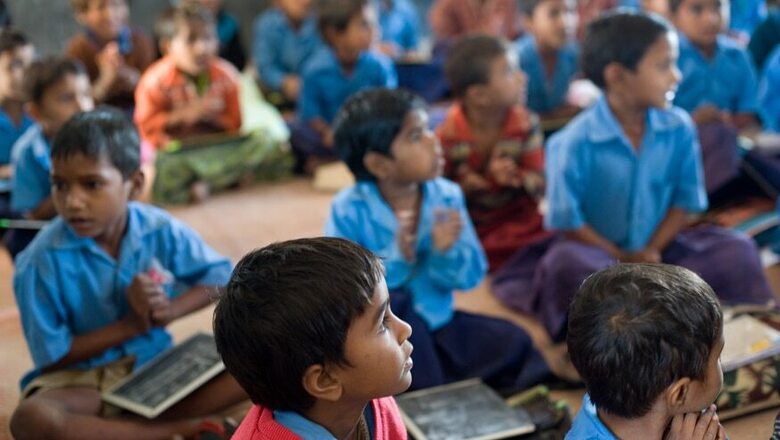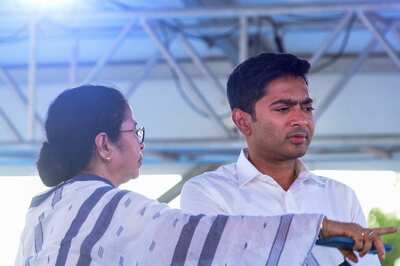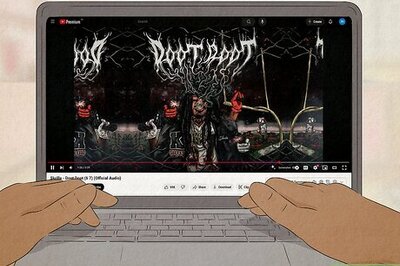
views
New Delhi: National Commission for Protection of Child Rights (NCPCR), an autonomous body under the Ministry of Women and Child Development, has prepared a Model Fee Regulatory Framework for unaided private schools, and shared it with the Human Resource Development Ministry to be further passed on to the states.
The framework includes digital strategies to deal with the menace and suggests that appropriate government must develop a suitable online mechanism using digital technology and artificial intelligence.
This online system shall be accessed by the administrator at state level, and district fee regulatory committee (DFRC) for respective districts, provided that the state level administrator has access to the information of all schools in the state.
Explaining the procedure starting from proposal submission to fee determination, Priyank Kanoongo, member education NCPCR said, “The school will log in to the system and a unique login id will be generated for each school. After logging in, the school shall submit proposal and the requisite processing fee as per the instructions provided and prompted on the system.”
After the proposal is successfully submitted, he added, “The proposal will be analyzed taking into consideration the variable indicators of expenditure and income and constant indicators of the respective district using software or artificial intelligence.”
The analysis will provide a fee range a school can charge and it would be forwarded to the DFRC along with complete proposal of the school.
The committee formed for this purpose of fee regulation before passing the final order on fee determination of a given school, may offer separate hearing to the representative of the concerned school and present any additional or supporting information in favor of the proposal.
The proposal of schools for determination of fees shall be examined after taking certain considerations into account: “Consumer Parity Index”, “Per capita expenditure of the respective district or state”, “City allowance”, “Cost of land and building as per circle rate.”
“The increase in fee within the levels shall not be more than 10 percent of the preceding level,” he added.
The Committee may call for any further information or statements as are necessary for scrutiny of the proposed fee or fee structure from the school within the specified time limit.
The model framework calls for appointment and enhanced role of the “Parent Teachers Association” (PTA) in the nature of a School Management Committee (SMC) as prescribed by the RTE for government schools.
Why the new framework?
The Commission has taken note of the recent atrocities children suffered due to fee related issues.
Kanoongo said, “The year 2018 has seen unprecedented cases of children suffering due to fee related issues. We collected the information of such cases from all states and found that this year we had a lot many cases reported than in the past years.”
The reports states: “As school fee is a financial matter between the school authorities and the parents; therefore, it is to be dealt with the parents and not with the children.”
The model framework is for private unaided schools which are 23 percent of the total schools in India catering to 36 percent of total population of children attending school.
Kanoongo added, “It was developed after examining the fee regulatory guidelines, laws and acts adopted by different states. The best policies of the states that aim to provide a preventive strategy against physical, mental and emotional harassment of children in schools resulting from mutual dispute between school and parents on fees related issues have been incorporated in the model framework.”
Glimpse of Few States
- Tamil Nadu
Tamil Nadu Schools (Regulation of Collection of Fee) Act, 2009
Under the Act, a district committee decides the maximum fee that can be charged by a private school-affiliated to the state education board in the district.
Once the ruling of the committee is final the fee is fixed for three years. Schools can apply for a revision of fees after this time period. The committee also has the power to verify whether schools that are already affiliated with the Central Board of Secondary Education (CBSE) charge fees commensurate with the facilities.
- Rajasthan
Rajasthan Schools (Regulation of Fee) Act, 2016
Every private school in the state will have to constitute a Parent-Teachers Association (PTA). Through lottery, willing parents will then be chosen for a school level fee committee (SLFC). The committee will constitute a chairperson, representative of the management, school principal (acting as secretary), three member teachers nominated by the school and five parents from the PTA.
While the School management may propose the fee, it will have to present it before the SLFC at least six months before the next academic year.
If the fee committee fails to decide the fee, the management will refer it to Divisional Fee Regulatory Committee (DFRC), to be constituted under a Divisional Commissioner, among other officials.
Primarily, the DFRC will have to “adjudicate the dispute between the management and the Parent-Teachers Association” with regards to deciding the School fee.
The orders passed by the DFRC shall be binding on the private school for three academic years. Above the DFRC, there will be a Revision Committee with the secretary of the elementary education department as chairperson.
- Delhi
The Delhi School Education (Amendment) Bill; and Delhi School (Verification of Accounts and Refund of Excess Fee) Bill
This prohibits schools from charging the capitation fee for admission in any class, and screening procedure while admitting the child up to elementary level. The Delhi Schools Verification of Accounts and Refund of Excess Fee Bill has a host of provisions aimed at ensuring that private Schools show greater accountability in fees accepted and money spent.
- Uttar Pradesh
UP Self-Financed Independent Schools (Regulation of fees) Bill-2017
The private Schools, irrespective of any Board, charging fees above Rs 20, 000 per annum will be brought under the ambit of the proposed law. The Bill makes it mandatory for all private schools to submit their fee statement online by December 31 every year.
Under the proposed Bill, students will pay admission fee on their first admission to the school, at the time of promotion from class V to VI, at the time of promotion from class VIII to IX and at the time of promotion from class X to XI.
The draft Bill proposes Rs 1 lakh penalty on schools flouting provisions for the first time, Rs 5 lakh for the second and de-recognition for the third time. Once the new law comes into force, a zonal fee regulatory committee, headed by divisional commissioners, will monitor fee charged by schools.


















Comments
0 comment